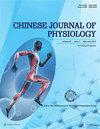小鼠脂肪干细胞和骨髓干细胞的成骨分化
IF 1.6
4区 医学
Q4 PHYSIOLOGY
引用次数: 1
摘要
间充质干细胞(MSCs)已在体外成功培养和增殖,并可通过化学刺激分化为多种特定细胞类型,如脂肪细胞或骨细胞。骨髓间充质干细胞的主要应用之一是在再生医学研究中。MSCs可以从许多成年组织中收集。在本实验中,使用8周大的表达绿色荧光蛋白(EGFP)的转基因小鼠FVB/NCrl-Tg(Pgk1-EGFP)01Narl从腹部脂肪组织获得脂肪来源的干细胞(ADSCs),从股骨获得骨髓干细胞(BMSCs)。我们比较了ADSCs和BMSC在生长速率和分化能力方面的差异。不同世代(P1和P3)干细胞的生长曲线显示,ADSCs的增殖率显著高于BMSCs。通过集落形成单位成纤维细胞的数量来测量干细胞的纯度。结果表明,不同世代(P1和P3)的ADSCs的菌落数显著高于BMSC,并且ADSCs的纯度高于BMSC。比较ADSCs和BMSCs诱导成骨分化的能力以及Runx2和Opn基因的表达,结果表明ADSCs比BMSCs具有更高的成骨分化率。总之,小鼠ADSCs表现出与BMSCs相似的成骨分化能力,但在干细胞纯度和体外细胞增殖方面比BMSCs具有更好的能力。本文章由计算机程序翻译,如有差异,请以英文原文为准。
Osteogenic differentiation from mouse adipose-derived stem cells and bone marrow stem cells
Mesenchymal stem cells (MSCs) have been successfully cultured and proliferated in vitro and can differentiate into a variety of specific cell types, such as adipocytes or osteocytes, through chemical stimulation. One of the major applications of MSCs is in regenerative medicine research. MSCs can be collected from many adult tissues. In this experiment, an 8-week-old expresses green fluorescent protein (EGFP) transgenic mouse, FVB/NCrl-Tg(Pgk1-EGFP)01Narl, was used to obtain adipose-derived stem cells (ADSCs) from abdominal adipose tissue and bone marrow stem cells (BMSCs) from femur bone marrow. We compared the differences in the growth rate and differentiation ability of ADSCs and BMSCs. The growth curves of different generations (P1 and P3) of the stem cells showed that the proliferation rate of ADSCs was significantly higher than that of BMSCs. The purity of stem cells was measured by the number of colony-forming unit fibroblast. The results show that the number of colonies of ADSCs at different generations (P1 and P3) was significantly higher than that of BMSCs and that the purity of ADSCs was greater than that of BMSCs. Comparing the ability of ADSCs and BMSCs to induce osteogenic differentiation and the expression of Runx2 and Opn genes, the results show that ADSCs had a higher rate of osteogenic differentiation than BMSCs. In summary, mouse ADSCs display similar osteogenic differentiation ability to BMSCs but have a better capacity than BMSCs in terms of stem cell purity and cell proliferation in vitro.
求助全文
通过发布文献求助,成功后即可免费获取论文全文。
去求助
来源期刊
CiteScore
2.30
自引率
5.60%
发文量
36
审稿时长
6-12 weeks
期刊介绍:
Chinese Journal of Physiology is a multidisciplinary open access journal.
Chinese Journal of Physiology (CJP) publishes high quality original research papers in physiology and pathophysiology by authors all over the world. CJP welcomes submitted research papers in all aspects of physiology science in the molecular, cellular, tissue and systemic levels. Multidisciplinary sciences with a focus to understand the role of physiology in health and disease are also encouraged.
Chinese Journal of Physiology accepts fourfold article types: Original Article, Review Article (Mini-Review included), Short Communication, and Editorial. There is no cost for readers to access the full-text contents of publications.

 求助内容:
求助内容: 应助结果提醒方式:
应助结果提醒方式:


